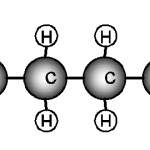Petroleum, commonly known as crude oil, is a complex and naturally occurring fossil fuel formed over millions of years from the remains of ancient marine organisms. Composed mainly of hydrocarbons, which are organic compounds containing hydrogen and carbon, petroleum plays a crucial role as a source of energy and raw material for a diverse range of products.
One primary product derived from refining crude oil is gasoline, a liquid fuel widely used in internal combustion engines for automobiles. Diesel, another liquid fuel, is utilized in diesel engines for transportation and industrial applications. Aviation fuels, like kerosene and Jet-A, are essential for powering aircraft engines.
Heating oil, a distillate fuel similar to diesel, finds application in heating homes and buildings. Bitumen, a heavy form of petroleum, is crucial in producing asphalt for road construction. Lubricating oils and greases, derived from petroleum, play a vital role in reducing friction and wear in machinery.
The petrochemical industry utilizes petroleum as a feedstock to produce various chemicals and materials, including plastics, synthetic rubber, fertilizers, solvents, and industrial chemicals. Liquefied Petroleum Gas (LPG), a mixture of propane and butane, serves as a versatile fuel for heating, cooking, and automotive applications.
The refining process separates crude oil into different components based on their boiling points, enabling the production of a wide array of products. Petroleum’s versatility makes it indispensable in various industries, although there is a growing emphasis on exploring and adopting alternative, more sustainable energy sources to reduce dependence on fossil fuels.

